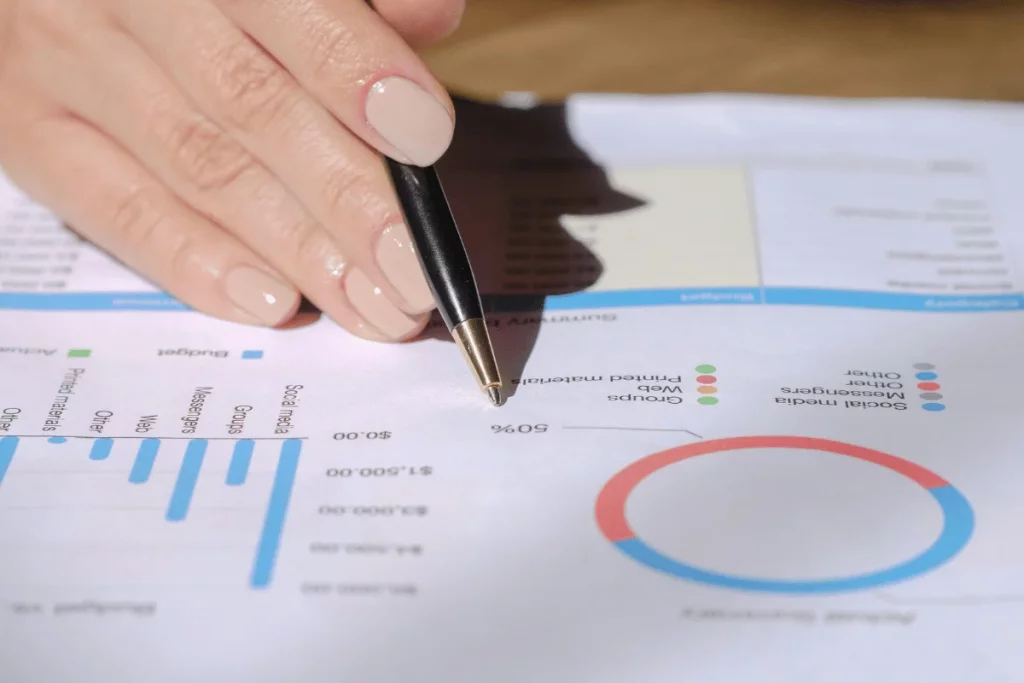A business valuation report provides a detailed analysis of your business's worth, backed by data and market insights, helping you establish a fair and competitive selling price.
While it may sound like a simple document, a business valuation report can be daunting to make.
You need to consider various aspects, such as what you should base it on, what to include, and more.
In this guide, we'll look at the steps valuers take to develop a compelling valuation report for different stakeholders so you can all make the right decisions based on data.
We'll also discuss what informs the report, what it contains, and why you should work with experts for better outcomes.
It's important to note that while you can do your own business valuation and prepare a report yourself, it's best to hire experts to maintain optimal objectivity.
Here are the steps a business valuation expert usually follows to develop a reliable valuation report:
We'll discuss these steps in detail later on in the article. Undoubtedly, you'll want a document that builds credibility and trust with potential buyers, employees, shareholders, or other stakeholders.
Exitwise works with you to streamline the whole M&A process, whether you need the valuation and its report for internal purposes or as part of your exit strategy.
If you are looking to exit, we help you hire and collaborate with M&A experts such as finance accountants, wealth advisors, investment bankers, and corporate attorneys to optimize your business sale.
Consult with our team today to maximize your business's value or exit.

A business valuation is a detailed document that shows a business's fair and objective worth based on various financial data, analysis methods, and market conditions.
Business valuation reports are usually prepared by qualified professionals such as investment bankers, certified business appraisers, and chartered accountants.

An accurate business valuation helps make decisions such as:

Valuation report formats vary greatly, depending on the valuer, industry, and business complexity, among other factors.
The typical professional business valuation report uses the following format:
Notably, this isn't a fixed format regarding the order and elements. For example, some formats may include a list of tables after the table of contents.

Most business valuation companies use the following three methods to determine how much your business is worth:
Type of Valuation Method
Focus
Income Approach
The focus is on a business's ability to generate reliable income over time. The projected future incomes or cash flows are then adjusted to their current value, typically using the discounted cash flow formula.
Market Approach
The focus is on the valuations of similar businesses or the valuation multiples at which other similar businesses have sold recently.
Asset Approach
The focus is on the difference between the total assets and liabilities once adjusted to fair market values.
The method you and your valuer choose depends on your business type and development stage, available information, and valuation purpose, among other factors.

Let's now take a closer look at the steps your business valuation experts take to develop a detailed valuation report:
For the report, you need to define why you want to value your business and your target audience.
Some common purposes for a business valuation include planning, selling, financing, estate planning, and settling disputes.
Your target audience will depend on the purpose. For example, if it's for strategic planning, the report can be made for the top management. If it's part of exit planning, you can share it with potential buyers.
Other considerations include valuation date and information sources and their limitations. You should also define the standard of value, which can be fair market value or investment value.
Considering the purpose and scope helps you choose the right valuation methods and maintain objectivity.
Any valuation requires both internal and external data. Your team must gather and analyze financial statements, past valuation reports, comparable business information, precedent transactions, and industry reports.
Your valuer performs due diligence to find the best data, forecast future cash flows, normalize earnings, and adjust financial statements as needed.
They also analyze historical and projected performance, business and industry risks, profitability, and growth prospects.
A proper valuation also considers internal characteristics such as strengths, weaknesses, and opportunities to identify critical drivers of value and risks.

Business valuation experts choose the right valuation methods depending on the ones that best suit your scope and purpose.
The three common methods include the income approach, market approach, and asset approach (discussed above).
Using several methods helps cross-check the valuation and get a range of values rather than a single amount.
The business appraiser reconciles the ranges obtained when they calculate the value of your business. The step involves activities such as:
The valuation report summarizes the valuation in a concise, convincing, and clear manner. Here’s what the valuers consider:
Once the report is complete, the valuation team edits and proofreads it to check for errors and inconsistencies before they present it to you and your target audience.
Since conducting a valuation to make a useful report is quite a process, you should work with professionals to get the right valuation. At Exitwise, we can help you work with the right experts.
You can count on us to find industry-specific M&A experts to help you value your business accurately and write a detailed report for internal or external uses.
Schedule a chat with our team to get started.

Like the valuation report format, the elements vary greatly based on the format itself, business complexity, industry, business valuation service, and the purpose of the valuation.
Still, you can expect the following typical elements in a business valuation report:

Creating an accurate and reliable valuation report can be tricky.
Here are a few tips to ensure it’s done correctly:

We aim to help you hire, manage, and work with the best M&A experts in your industry to assist you achieve your business goals.
For example, if you want to sell your business, they can value it for you and negotiate the best sale price on your behalf.
We can help you hire M&A accountants, lawyers, wealth advisors, and investment bankers to professionally value your business and maximize its worth and sale price.
Check out how our proven system helps streamline the M&A process.

Below are some questions business owners commonly ask regarding business valuation reports:
The cost of a business valuation report is usually included in the total business valuation cost. As such, since the report is a document showing the valuation’s outcome, you don't have to pay for it.
However, a ‘business valuation report’ sometimes means the whole valuation process, so you may see a price attached.
Additionally, some digital business valuation calculators may charge a fee for a detailed document showing the estimated or preliminary value. This fee is a valuation report cost, varying depending on the calculator provider.
The valuation and its report typically require documents such as:
The time it takes to prepare a comprehensive business valuation report is not easy to quantify because it is part of the larger valuation process.
The duration can range from a few weeks for a smaller business to some months for a larger, more complex business.
The time varies depending on the business, industry, business appraiser, and purpose and complexity of the valuation.
You can do a business valuation report yourself if you have a background in business appraisals. Before writing the report, you'll need a thorough and accurate valuation.
However, since it's a long and complicated process, it's best to get a professional to help you with the valuation and report preparation. Let Exitwise help you find the best M&A experts.
A business appraisal refers to the entire valuation process, which includes preparing and presenting a business valuation report. The report is a detailed document that shows the methodologies used and the conclusion of the business's worth.
However, you may find the two terms used interchangeably in some instances to refer to the end-to-end process of determining the value of a business.
Although you don't have to write a business valuation report yourself, knowing how your M&A team handles it can help you check its quality and better understand it.
We've examined the critical steps to take to ensure the report is highly objective, accurate, and reliable for both, internal and external use.
When you hire us at Exitwise, we help you find the best M&A professionals to help you maximize your business exit or planning.
Chat with us now to start streamlining your strategic planning or exit strategy using data-informed decisions.
Let Exitwise introduce, hire and manage the best, industry specialized, investment bankers, M&A attorneys, tax accountants and other M&A advisors to help you maximize the sale of your business.

